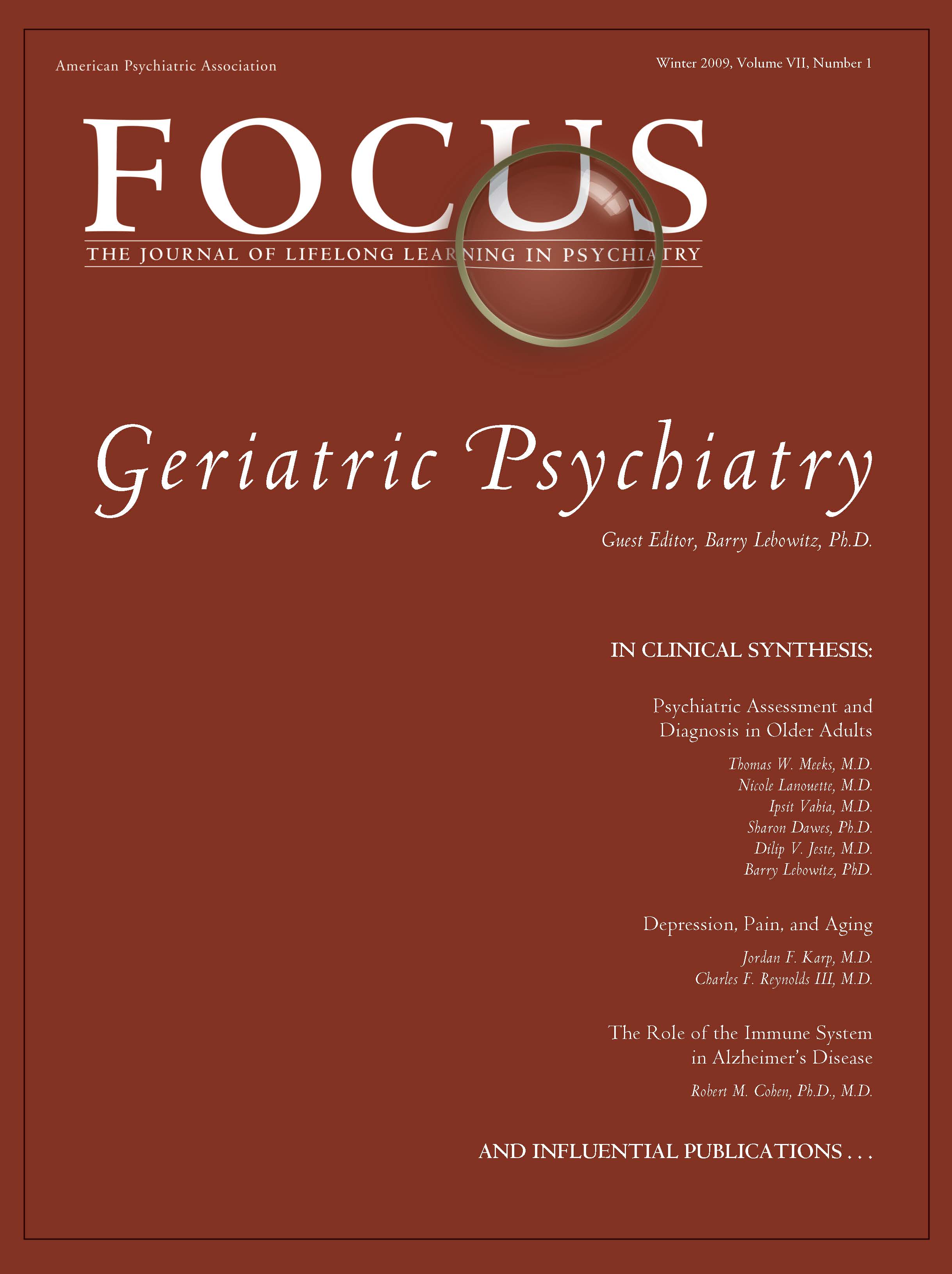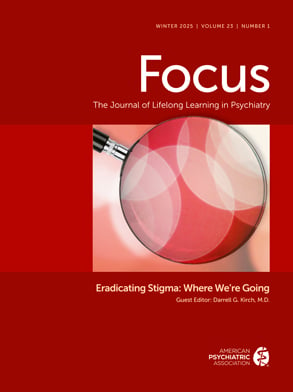Our population is growing older. Major investments in public health, sanitation, and therapeutics added nearly 30 years of life expectancy in the 20th century. When coupled with lower birth rates, this increase has led to the expectation that the proportion of older persons in the population (by convention, those aged 65 and older) will reach 20% by midway through the 21st century. Moreover, the older population itself is growing older, with people aged 85 and older representing the fastest growing segment. The same dynamic that has resulted in this remarkable growth of the older population in general has also contributed to the increase in prevalence of chronic conditions, leading to the worldwide pandemic of chronic disease and disability forecast by the psychiatric epidemiologist Ernest Gruenberg (
1) three decades ago.
Much has been made of this demographic story and of the extreme heterogeneity of the older population. Social analysts discuss stresses on families and other societal institutions while at the same time they describe the robustness of intergenerational familial support. Pension systems and health insurance programs are described as being in danger because of the projected population increase, yet good health and affluence characterize many in the older population.
The biological processes of aging are, surprisingly, not well understood. One thing is clear, however: aging brings important changes, and some of these changes are often difficult to distinguish from the pathophysiologically based signs and symptoms of diseases common in older persons. Age of onset, always an important clinical consideration, assumes greater importance in diagnosis in older patients to differentiate acute exacerbations of long-standing illnesses from first-ever onset of a new illness.
Comorbidity of psychiatric illness with a broad range of chronic and acute physical illnesses and other brain disorders represents a second area of clinical significance. Multiple co-occurring conditions and the effects of complex and interacting polypharmacy regimens complicate diagnosis and treatment strategies and may compromise prognosis and long-term outcome.
Care of the older patient represents a special challenge because of the need to involve the family in the planning and delivery of the care. Geriatric specialists will typically report that they spend as much time with the family as with the patient. Family members, typically spouses or adult children, provide important clinical information and are essential in adherence to treatment. Psychoeducation and supportive interventions with the family often have beneficial effects for the patient (although reimbursement for such intervention can be difficult).
These demographic and clinical phenomena contribute to the challenge and to the excitement of caring for older patients with psychiatric illnesses. In this issue some important factors in approaching the older patient are addressed.

